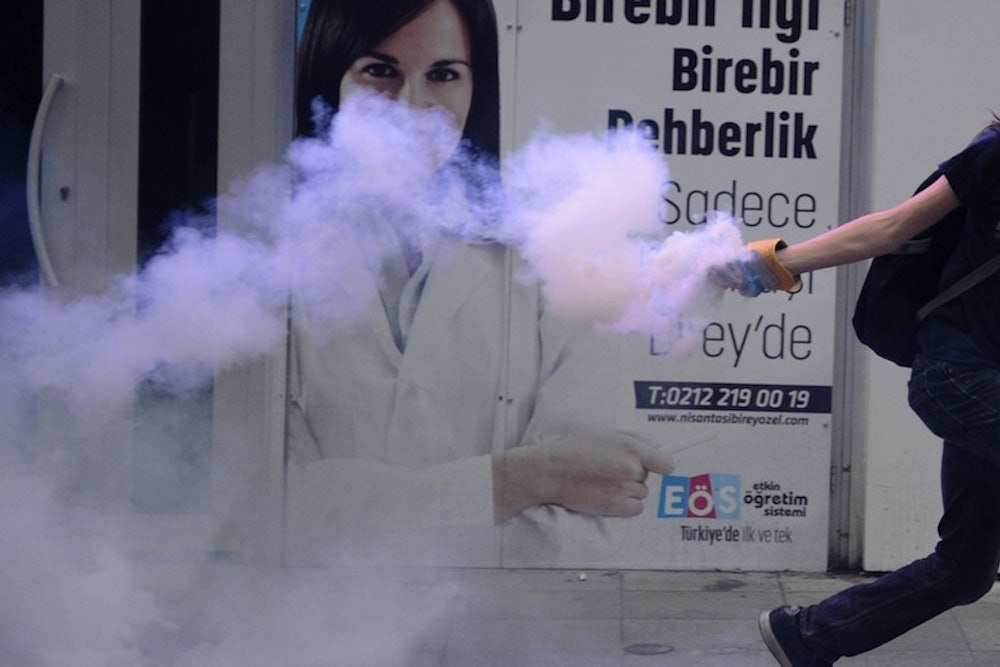ISTANBUL—The city spent last week bracing for the violence that might accompany the first anniversary of the Gezi Park protests. Activists announced on May 27 that they would mark the day with another rally in Taksim Square, just as news came that a Turkish court had ordered the arrest of an additional 47 people who allegedly participated in last year’s events, according to the Hurriyet Daily News. Hotels cautioned tourists that there would be “trouble” and urged guests to steer clear of downtown. Turkish newspapers reported that, come Saturday, 25,000 police officers from 11 provinces and 50 anti-riot vehicles would be dispatched to Taksim Square.
On the morning of the anniversary it became clear that those numbers were not an exaggeration. Police stood in large groups on street corners and sat in cafes, leaning on their Plexiglas shields and passing the time before the protests were scheduled to begin that evening. Many of them were plainclothes officers; they hid their batons in shopping bags or wore them sticking out of their standard-issue backpacks. Some just twirled them around.
Along Istiklal Avenue, the wide shopping boulevard that leads to Taksim Square, cadres of officers were gathered at practically every intersection. The square itself had been cordoned off, and police were standing shoulder to shoulder at the entrance to Gezi Park, but stores were open and people were milling about. More than a few tourists sauntered up to the barricades to see what was going on.
Within a few hours, the mood shifted. In the afternoon, CNN correspondent Ivan Watson was detained while reporting live from the square; police blocked off all entrances to the area, refusing to let even Turkish press through. Protesters assembled, and clashes began throughout the city.
Like last year, police used pepper spray and water cannons against civilians. On a plush street in the neighborhood of Besiktas, two cadres of police stood on either side of a block of upscale restaurants, and people dining al fresco watched as a man was hauled off to join other protesters being held in a bus parked up the street. More than 80 had been detained and more than a dozen injured by nightfall, and there were reports that protests had begun petering out as midnightapproached.
In the streets, people leaned out from their windows to bang pots and pans in protest, joined by passersby clapping their hands. In Istanbul, the discordant noise is all too familiar as a last-resort mechanism of protest and solidarity. It’s what one turns to when one can do nothing else; it’s been called the “music of freedom,” but on Saturday it felt like anything but.
